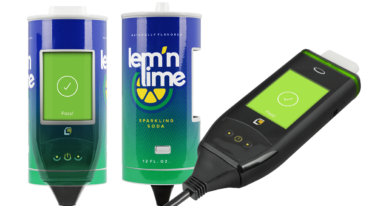
Driving under the influence is a grave problem in today’s society. In 2016, the CDC reported over 10,000 deaths in alcohol-related driving accidents. That’s bordering 30 deaths each day. And that doesn’t even take into account the non-fatal accidents, property damage, and the close encounters that are all a result of driving while intoxicated.
The law reflects this graveness with harsh penalties for offenders. However, sentences range depending on several factors. The age of the offender, the level of intoxication, as well as the individual states’ laws all contribute to the severity of repercussions. These repercussions can be as simple as a fine or mandatory installation of a car breathalyzer, or more serious like actual jail time. Because each state has its own way of defining a DUI and another for defining a DWI (driving while impaired), the question is often asked: is DUI a traffic violation?
Is a DUI a Traffic Violation?
The short answer is: It depends.
States vary on their classification of DUIs. New York, New Jersey, and Wisconsin all consider first offense DUIs to be traffic infractions while the other states count them as criminal offenses. These criminal offenses are then broken down into a wide spectrum from class 1 or class 2 misdemeanors, all the way up to felonies.
Regardless of how the DUI violation is classified, DUIs come with a long list of repercussions. Even for traffic violations, the list includes:
- Fees
- Suspension of license
- Jail time from anywhere between 24 hours to 30 days
- Ignition interlock device or car breathalyzer installed in motor vehicle
- Mandatory alcohol informational classes
What’s not included for traffic violations is the mark on your permanent record. Misdemeanors and felonies are both reportable on employment records and will show up on background checks.
Other Classifications of DUIs
For the vast majority, states automatically classify DUIs as a criminal offense. And in all states, repeated offenses are subject to more severe classifications and consequences. These range depending on how lenient or strict the state is with alcohol-related crime. If it’s not a traffic violation, DUIs are classified as one of two criminal charges.
Misdemeanor – Misdemeanors are non-indictable offenses, known as “lesser” criminal offenses. They’re subject to less jail time than felonies (less than six months) and are often associated with disorderly conduct and petty crimes. Most states consider first DUI violation a Class 1 or Class A misdemeanor, which is just below a felony.
Felony – Committing a felony means having a serious mark on your permanent record. Felonies are often punishable with jail time over a year and have long-lasting consequences. They can affect job prospects, housing rights, and the ability to get a loan.
Delaware as an Example
While every state has different standards on DUIs, the severity of the punishment increases with each offense. Delaware, for example, has seven tiers of increasing sentences. The first two instances are considered misdemeanors, while the third to the seventh increase from a Class G Felony to a Class E, Class D, then to a Class C Felony.
Factors that Determine Offense
What’s important to remember about these increasing sentences, is that these are for the typical DUI conviction. Many factors determine the seriousness of the DUI violation. Whether or not a DUI is a misdemeanor or felony depends on:
- Number of offenses
- Blood alcohol content
- Age of offender
- Location of DUI Arrest
- Additional Committed Crimes
Number of Offenses
As shown in Delaware, the number of offenses will harshen the severity of sentencing. Most states will offer misdemeanors for first and second offenses. After that, the minimum sentencing is often a felony. These increasing charges come with increasing punishments.
- Jail time increases
- Fines increase
- License probation period extends
- Community service time increases
Look Back Period
DUIs will often be tracked based on the state’s “look-back period.” This is the period of time for which a judge can look back into your history to see other DUI charges. If they determine there is a pattern of alcohol misbehavior, they can sentence to the full extent of the law. The timeline on this is not federally mandated, so there is no standard amount of time. Most states fall between 5-10 years for their look-back period, while others have a lifetime look-back period.
Those states with lifetime look-back periods are:
- Colorado
- Delaware
- Florida
- Massachusetts
- Michigan
- Montana
- New Mexico
- Texas
- Vermont
Blood Alcohol Content
Another factor that determines the sanctions of DUI offenses is the level of blood alcohol content at the point of arrest. Borderline cases are treated differently than extreme cases. There are also exceptions for commercial drivers, minors under the legal drinking age, and for enhanced penalty BAC levels—those who far exceed 0.08 BAC level.
Commercial Drivers
Any commercial driver’s license holder is subject to a strict legal BAC limit of 0.04%. Breaking this limit has harsher penalties as these are drivers with higher standards. CDL holders will often lose their license and be ineligible for renewal for at least a year.
Age of Offender
Minors under the legal age of drinking are subject to stricter laws in a DUI violation. In many states, probationary periods and license suspension will often double for minors. This has to do with the “zero-tolerance” DUI policy.
Zero Tolerance Policy
The zero-tolerance policy was legislated by MADD (or Mother’s Against Drunk Driving) to prevent teens from even considering drinking and driving due to extreme consequences. However, this policy doesn’t just apply to minors. Previous DUI offenders who are on probation are also subject to the zero-tolerance laws surrounding drinking and driving.
For most states, this means that you can be charged a DUI for having a BAC of 0.02 or higher. Some states, including California and New Jersey, reduced that to 0.01% stating that any alcohol in the system is too much.
Then there are those states with a 0.00% BAC tolerance for minors and those on probation. The states with the most stringent zero tolerance policies are:
- Alaska
- Arizona
- D.C.
- Illinois
- Maine
- Maryland
- Michigan
- Minnesota
- North Carolina
- Oklahoma
- Oregon
- Pennsylvania
- Texas
- Utah
- Wisconsin
Location of DUI Arrest
While this is a lesser known factor, some states have significantly harsher punishments if the DUI violation was reported near a school or hospital. This possible endangerment is evidence of negligence, and the increased sentencing is written into the legal code.
Additional Committed Crimes
Another aspect that can contribute to the severity of crime depends on what happened during the intoxicated driving. Often, DUIs are correlated with property damage, speeding, reckless driving, car accidents, and more. These are charged as separate crimes each and layered on top of the DUI.
This causes much harsher sanctions, as each crime elevates the other. This is often when DUIs are misconstrued as traffic violations. Traffic violations will get lumped in with DUIs, but most DUIs are considered a criminal offense by themselves.
DUI Repercussions
If convicted of a DUI violation, the repercussions can be variable and long-lasting. The following penalties are what happens when you get a DUI:
- – To be retrieved at the DMV for a fee.
- – This could be as short as 12 hours or as long as 30 days depending on the intensity of crime.
- – This is often the case when no other person can pick up the car after the DUI arrest. The officer will be forced to call a tow truck, and the motor vehicle will be impounded.
- – DUI offenders will often have a fine or fee to pay as well as a court date to show up for.
Less than 2% of DUI cases actually go to trial. More often than not, once a court date has been set, there will be an opportunity to settle and plead guilty. From there, the sentence depends on the severity of the crime and laws of the state. These additional punishments can include but are not limited to:
- License suspension can be as short as a month or as long as a year. If this is a repeated offense, it could be up to 5 years of suspension or revocation of license altogether. For minors, the driving privileges suspension period is often longer.
- DUI fines add up and the more repeated the offense, the higher the fees.
- Some DUI cases are often accompanied by community service. This could be 30 days, 60 days, or more.
- – You may have to take classes as part of court mandates to retrieve your license. This often depends on the state.
- – Misdemeanors and felonies are often requested as part of background checks for employment. This could negatively affect job prospects in the future.
- – With a DUI on your permanent driving record, insurance rates will increase dramatically.
- – Students who have gained scholarships have had them revoked due to DUI charges brought against them.
- – Your vehicle may be required to have an IID implemented for the duration of probation.
Ignition Interlock Device
An ignition interlock device is the newest advancement of the breathalyzer. It attaches to a vehicle’s engine and determines whether or not the car can be started based on the user’s breath. If the user’s BAC is above the legal limit, the car will not turn on.
In 2012, all fifty states allowed IIDs to be attached to those who have been convicted of a DUI. It is now becoming a standard in DUI sentencing, and proponents argue it could save hundreds of lives each year with implementation.
DUI Prevention
The strategies to prevent DUIs are best solved on a state by state basis. (Or maybe even further down at a local level.) Strategies that work best in heavily trafficked areas might not necessarily work in more rural areas. For this, it’s best to understand the overall principles and apply them as necessary.
DUI Laws – The first and most effective prevention of DUI comes from the legislative level. Over the last hundred years, the U.S. has slowly developed healthy policies regarding intoxicated-drivers. This has a direct link to the decrease in overall deaths and accidents occurring by alcohol-related driving incidents.
Police Checkpoints – Sober checkpoints are utilized by the police in common transit areas to check if drivers are impaired. Police are equipped with breathalyzers at hand for any suspicious behavior.
Technology – The IIDs mentioned above are only one technological improvement in drunk driving prevention. The prevalence of taxi-like services (think Uber, Lyft, etc.) have offered people an alternative to having a designated driver. Soon, automated cars will be another avenue available to people to avoid drunk driving.
Education – Education is how the next generation prevents the mistakes of the current generation. Programs like MADD and SADD (or Students Against Destructive Decisions) have been helping to educate schools on the epidemic of driving while under the influence.
Media Campaigning – By campaigning in commercials, on billboards, and in popular areas, cities and states can help decrease the number of DUIs each year.
DUI Law
Modern-day DUI laws haven’t always been so stringent. In fact, it wasn’t until the 1980s when Congress started to push for a lower legal BAC limit. Before per se laws of 0.08 were in effect, the standard practice was 0.15% BAC. The reduction down to 0.08 dramatically reduced alcohol-related driving deaths and some states are considering pushing the limit down further.
Utah, for example, just started a new limit of 0.05 and some states are waiting to see how it fares. Those opposed to these measures are from the hospitality industry who say that this lower limit goes too far and affects tourism in the state. Those in favor claim that the legal limit is still too high and reducing it will save lives.
Biking Under the Influence and More
DUI laws have expanded outward to affect nearly all vehicles, watercraft, and aircraft. While they’re less common than DUIs, boating under the influence and flying under the influence can get your boating or flying license suspended. And it’s not just automated vehicles either. Bikes, kayaks, and even riding horseback can get you a DUI if you do it under the influence.
Conclusion
There are a lot of entangled parts behind DUI laws. In the majority of states, DUIs are considered criminal charges and depend heavily on a number of factors like the number of previous DUIs, BAC level, and the age of the offender.
For a select few states, the first instance of a DUI is considered only a traffic violation. Although the repercussions are mostly the same, traffic violations don’t come with a permanent mark on background checks. Traffic violations are often associated with DUIs because of additional charges that can come with impaired driving.
Sources:
CDC. Impaired Driving: Get the Facts. https://www.cdc.gov/motorvehiclesafety/impaired_driving/impaired-drv_factsheet.html
NCSL. Criminal Status of State Drunken Driving Laws. http://www.ncsl.org/research/transportation/criminal-status-of-state-drunk-driving-laws.aspx
Delaware Office of Highway Safety. Delaware DUI Laws. https://ohs.delaware.gov/pdfs/DUI_LawBooklet1214.pdf
CDC. What Works: Strategies to Reduce or Prevent Drunk Driving. https://www.cdc.gov/motorvehiclesafety/impaired_driving/strategies.html
Washington Post. A Florida woman rode her horse on a highway drunk, police say. She was charged with a DUI. https://www.washingtonpost.com/news/dr-gridlock/wp/2017/11/04/a-florida-woman-rode-her-horse-on-a-highway-drunk-she-was-charged-with-a-dui/?utm_term=.ef26e1086c1d


